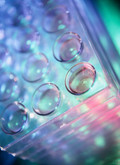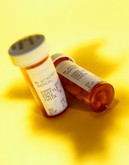Biosimilars
Phase I studies of a new biosimilar filgrastim product (Zarzio) published
Zarzio (Sandoz GmbH), a biosimilar recombinant human granulocyte colony-stimulating factor (filgrastim), was evaluated in healthy volunteers in four phase I studies and in neutropenic patients in a phase III study.
Development of a new biosimilar filgrastim product (Zarzio)
Filgrastim, a growth factor, is used to aid the recovery of bone marrow after chemotherapy treatment for cancer, especially in patients with neutropenia (low white blood cell count in the blood), causing reduced host defence.
Include health economics in development of biosimilars
The early inclusion of health economics in the process of developing biopharmaceuticals and biosimilars is imperative with a view to demonstrating their relative (cost) effectiveness and informing registration, pricing and reimbursement decisions, writes Professor Steven Simoens of the Katholieke Universiteit Leuven, Belgium, in the Journal of Medical Economics in 2009.
In the article he discusses health economic challenges of research and development, registration, pricing and reimbursement of biopharmaceuticals and biosimilars. Professor Simoens identified relevant studies by searching PubMed, Centre for Reviews and Dissemination databases (Database of Abstracts of Reviews of Effects, National Health Service Economic Evaluation Database, and Health Technology Assessments Database), Cochrane Database of Systematic Reviews and EconLit up to March 2009. Additionally, the bibliography of included studies was checked for other relevant studies.
Health Canada issues finalised guidance on biosimilars
Health Canada has released the finalised version of its Guidance Document on the approval of Subsequent Entry Biologics (SEBs), which is effective as of 5 March 2010.
Global Industry Analysts: Global biosimilars market to exceed US$2 billion by 2015
On 24 March 2010, Global Industry Analysts (GIA) announced the release of a new report, entitled ‘Biosimilars: A Global Strategic Business Report’
Biosimilars mean competition for biologic brands
The historic passage of two US healthcare reform bills on 21 March 2010, including a US Senate bill with an approval pathway for biosimilars, means biologic brands could see rivals replicate and market similar products, writes Mr Marc Iskowitz in Medical Marketing & Media. According to him, the new legislation, signed by US president Mr Barack Obama on 23 March 2010, lays out a series of requirements for the FDA to consider follow-on biologics (FOBs) applications.
Ranbaxy to develop biosimilars with US-based Pfenex
On 29 March 2010, Daiichi Sankyo’s Ranbaxy Laboratories in India announced its collaboration with US-based Pfenex on the development of an undisclosed biosimilar therapeutic protein with the Pfenex Expression Technology platform, a Pseudomonas-based recombinant protein expression technology.
US healthcare reform passed: Biosimilars Pathway in US with 12 years exclusivity for biologics
The US House of Representatives voted 219-212 on March 21 2010 to approve President Mr Barack Obama’s US$940 billion, 10-year health reform, and he could now sign the bill into law as early as 23 March 2010.
Hospira's biosimilar filgrastim recommended for EU approval
On 18 March 2010, the Committee for Medicinal Products for Human Use (CHMP) of the European Medicines Agency (EMA) adopted a positive opinion, recommending the granting of a marketing authorisation for Hospira’s biosimilar product Nivestim (filgrastim), 12 MU/0.2 mL, 30 MU/0.5 mL, 48 MU/0.5 mL solution for injection or infusion intended for the treatment of neutropenia.
South Korea to emerge as global leader in biosimilar R & D
According to the South Korea Pharmaceuticals and Healthcare Report Q2 2010 released by Business Monitor International (BMI) in March 2010, South Korea will emerge as a global leader in biosimilar research and development.











